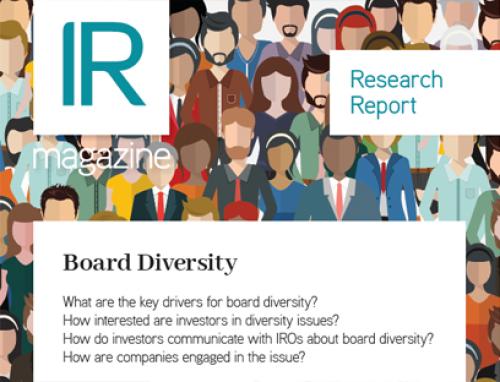A quarter of IROs say activities involving senior management will further careers
Whether IROs are looking to use their investor relations experience as a stepping stone to a further position or they see IR as a career in its own right, some skills and activities stand out as essential.
IR Magazine has been looking at exactly which activities IR professionals see as helping their career development and, interestingly, activities involving senior management are seen as almost equally important for respondents who see IR as a path to a further career as it is to those who see it as a career in its own right.
In fact, the importance of activities related to senior management (25 percent) is second only to those involving investor interaction (32 percent) for IROs who consider IR a career in its own right; less than a quarter (24 percent) of this group cite communications skills as key to career development.
For those looking to use the profession to further their opportunities, the importance of activities with senior management is actually seen as lagging those around communication (38 percent), investor interaction (35 percent) and activities involving financials (26 percent). Just under a quarter (24 percent) of respondents say activities that involve senior management will help their career development – the same number as name strategy involvement activities or activities that require a full understanding of the business.
Looking at the activities that IROs see as helping their career development – regardless of their future plans – investor interaction comes out on top, named by a third of respondents.
This is followed by communication activities at 29 percent, those involving senior management at 25 percent and financials at 23 percent. Activities around strategy involvement or that require a full understanding of the business are each mentioned by 19 percent of respondents, while 17 percent mention activities that do not fall into one of these six main categories.
There is some variation across North America and Europe, but these regions largely follow the global trends. In Asia, however, a much higher number of IROs see investor interaction activities as key: 53 percent. This number drops by more than half to what these IR professionals deem the next most important activities for their career development: those involving communication, cited by a quarter of Asian IROs.
Activities involving senior management are seen as far less important in Asia, named by only 11 percent of IROs in the region compared with 29 percent in North America and 28 percent in Europe, where these activities are on a par with those involving communication. This highlights the differing nature of senior management involvement in Asia as a whole, where the C-suite is less present at meetings and less relevant to day-to-day IR activities.
There are few differences at the cap size level, where activities around investor interaction or communication come out on top across each market cap, though those involving senior management are seen as notably less important to career development by small-cap IR professionals (16 percent) than to IROs at larger companies, where at least a quarter mention these types of activities.
Also of note is the fact that the number of IROs mentioning ‘other’ activities that do not fall into the main categories is highest at small-cap companies (23 percent) and most commonly mentioned after activities involving communication or investor interaction. The number drops to 17 percent at mid-caps, 12 percent at large caps and 13 percent at mega-cap companies.
|
What activities in investor relations do you think help your career development? |










